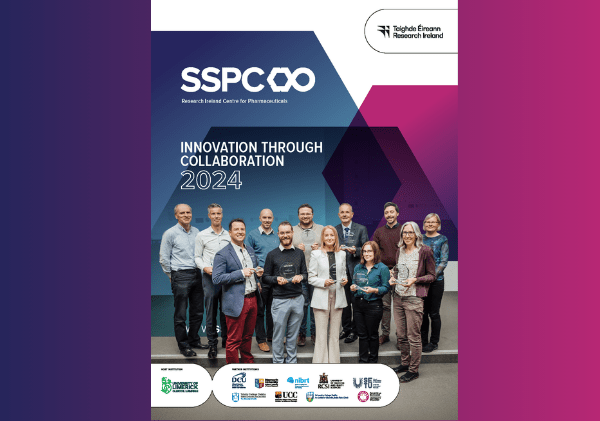Today, 24 September 2020: Minister for Further and Higher Education, Research, Innovation and Science, Simon Harris, TD, has today announced an investment of €5.5 million in 41 projects under the SFI led COVID-19 Rapid Response Research and Innovation Programme.
This funding focused on supporting projects which respond to the immediate and pressing needs of society arising from the pandemic.
Announcing the awards Minister Harris, said: “Today I am pleased to announce a further investment of €5.5 million in research and innovation related to COVID-19. It is clear this virus is with us for a significant period of time and yet we still have a lot to learn about it.
“Research, development and innovation will play a significant role in tackling the COVID-19 pandemic.
“The 41 projects announced today are part of a national drive to find solutions to the challenges we face now, and to help us prepare to live in a changing environment that requires new thinking and innovative approaches. I would like to congratulate all of the researchers receiving funding today and thank them for their efforts in Ireland’s collective response to COVID-19.”
Novel inhalable antiviral drugs to tackle COVID-19
Led by Dr Ahmad B. Albadarin, School of Chemical Sciences with Dr Rabah Mouras (Co-PI), researchers at SSPC, the SFI Research Centre for Pharmaceuticals and PMTC at UL’s Bernal Institute, Trinity College Dublin, Waterford Institute of Technology and Teva Pharmaceuticals, will collaborate on a project to research inhalable formulations of antiviral drugs with the aim of developing novel formulations.
Summary
When you inhale medication for respiratory related illnesses, it travels to the airways directly and can potentially be more efficient than if you take the medicine orally or by injection. However, to date, there are few inhalable drugs to counteract viruses, and none of them target SARS-CoV-2, the virus that causes COVID-19.
SFI is funding a project at the University of Limerick to develop and optimise antiviral drugs so they can be inhaled. The researchers at SSPC, the SFI Research Centre for Pharmaceuticals and PMTC at UL Bernal Institute, Trinity College Dublin, Waterford Institute of Technology and Teva Pharmaceuticals will test how well the inhalable antiviral drugs target SARS-CoV-2 in the lab, with the goal of developing inhalable versions of existing antiviral drugs for use in clinical trials against COVID-19.
What is the issue?
In general, medicines that are inhaled have been shown to be taken up more effectively in the airways compared to drugs administered by other routes, but we have little fundamental information about the development and benefits of inhaled antiviral drugs in COVID-19.
What will the research do?
The research will develop, optimise inhalable formulations of antiviral drugs, and test them in the lab to assess their suitability. The long-term goal is to prepare inhalable formulations of commercially available antiviral drugs currently in clinical trials for treating lung injury in COVID-19.
What will the impact be?
Inhalable antiviral formulations will decrease the severity of SARS-COV-2 infections and the progression of the disease. This will significantly reduce in-patient admissions, the burden on public budgets and hospitals and, most importantly, deaths due to COVID-19.
Dr Ahmad B. Albadarin, Principal Investigator at UL School of Chemical Sciences and the Bernal Institute says:
“This strategic project takes a very collaborative and multidisciplinary approach to collecting and providing impactful results and reliable data on novel inhalable formulations of antiviral drugs to address COVID-19 related infections. The aim is to develop and test these formulations in collaboration with our academic and industrial partners taking into consideration the feasibility of large-scale manufacture of the optimised formulations. The efficacy for antiviral activity at the lung epithelium will be assessed using in-vitro and ex-vivo approaches. The project is set to significantly help prevent the progression of the disease towards life-threatening conditions, limit the severity and duration of infections and subsequently reduce SARS-COV-2-related in/out-patient admissions.”
Congratulations to lead researchers Dr Peter Davern and Dr Emmet O’Reilly, University of Limerick, on their funding success for Self-sufficiency in lysis buffer for Ireland.


























